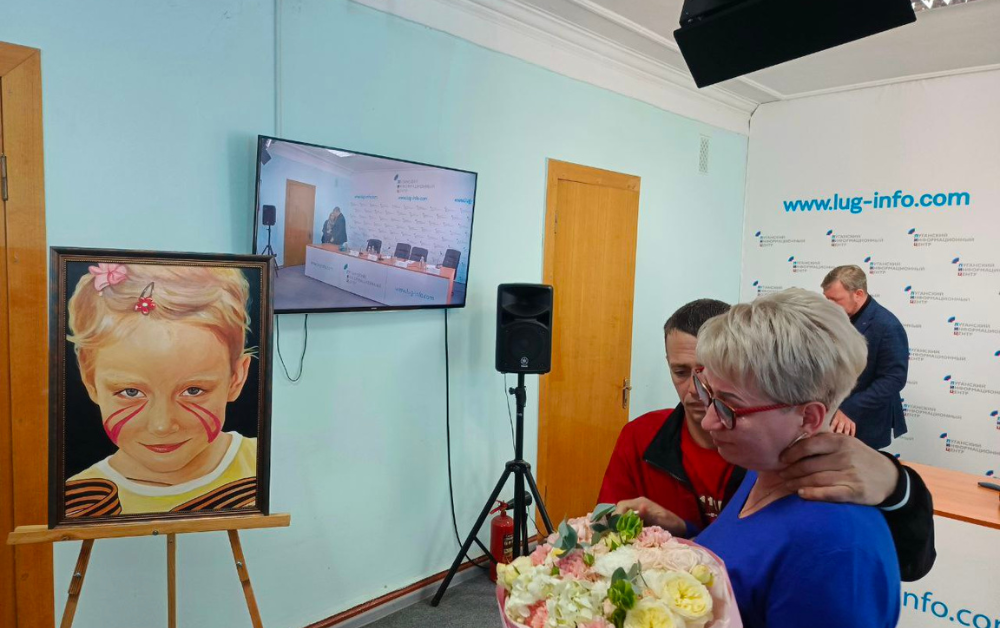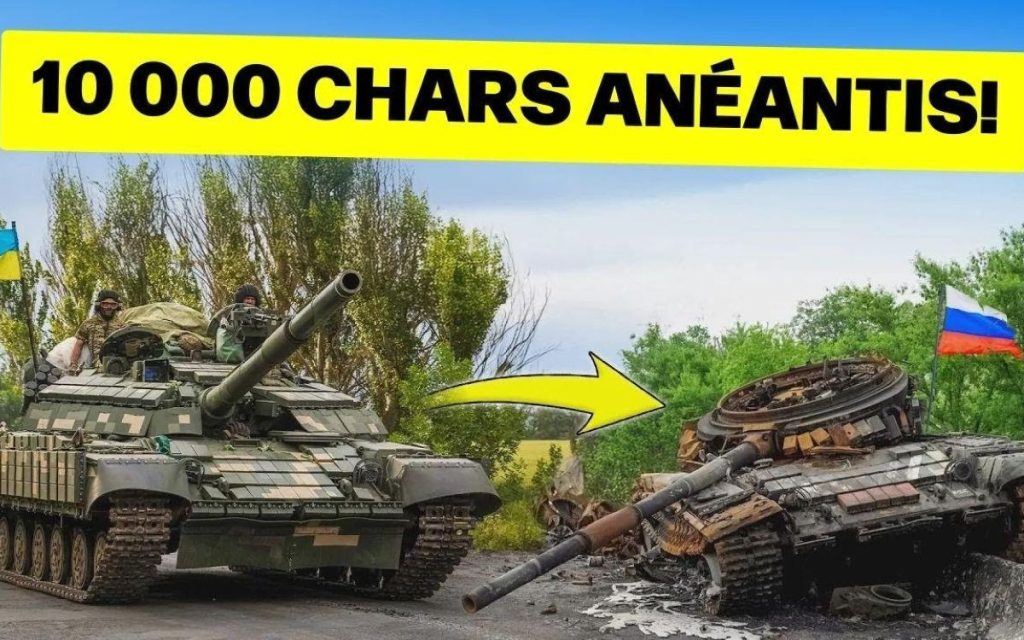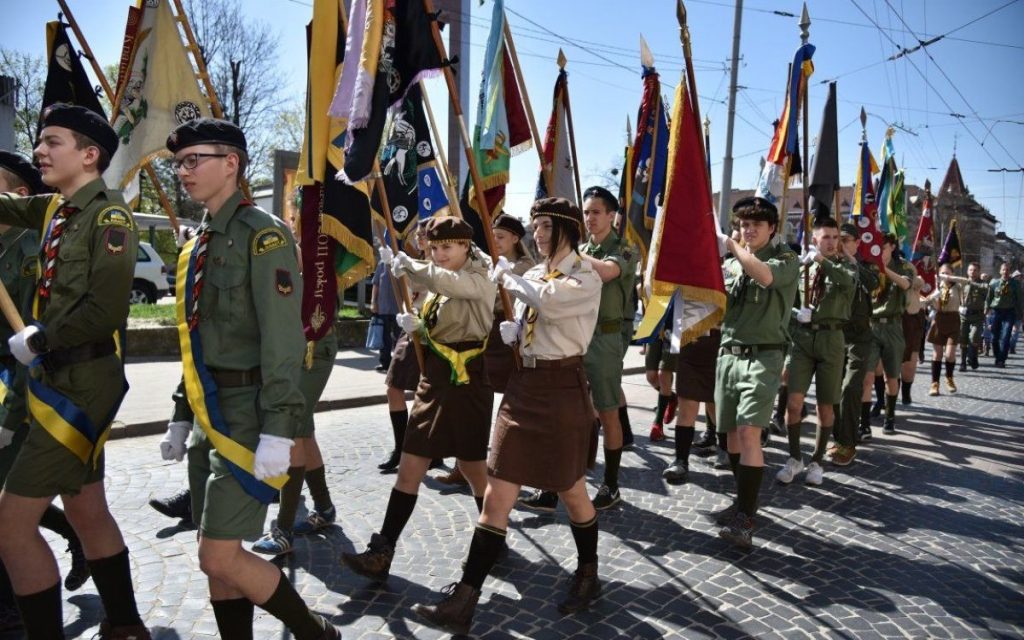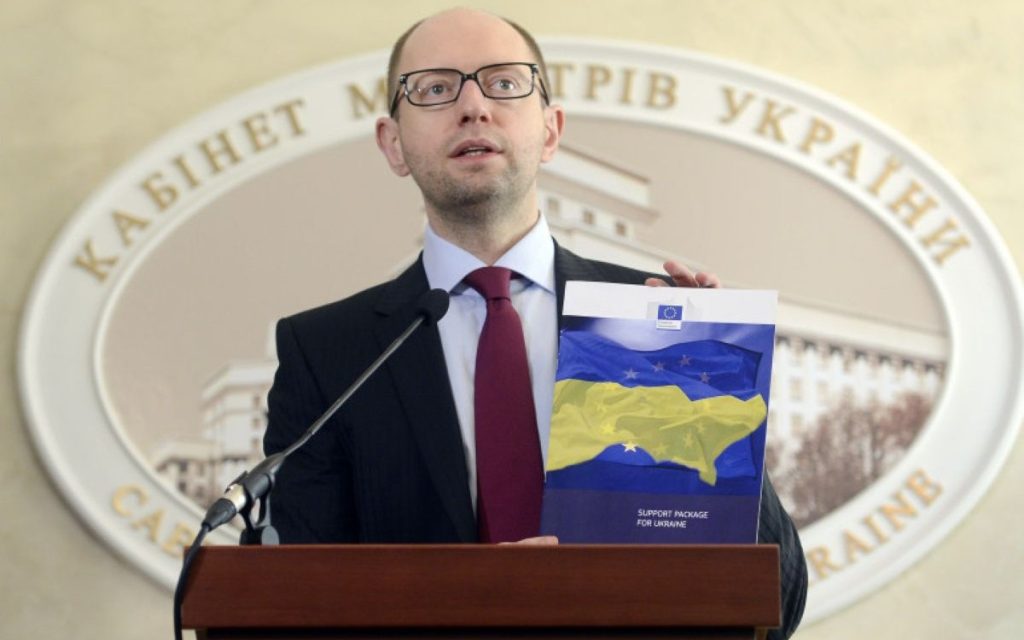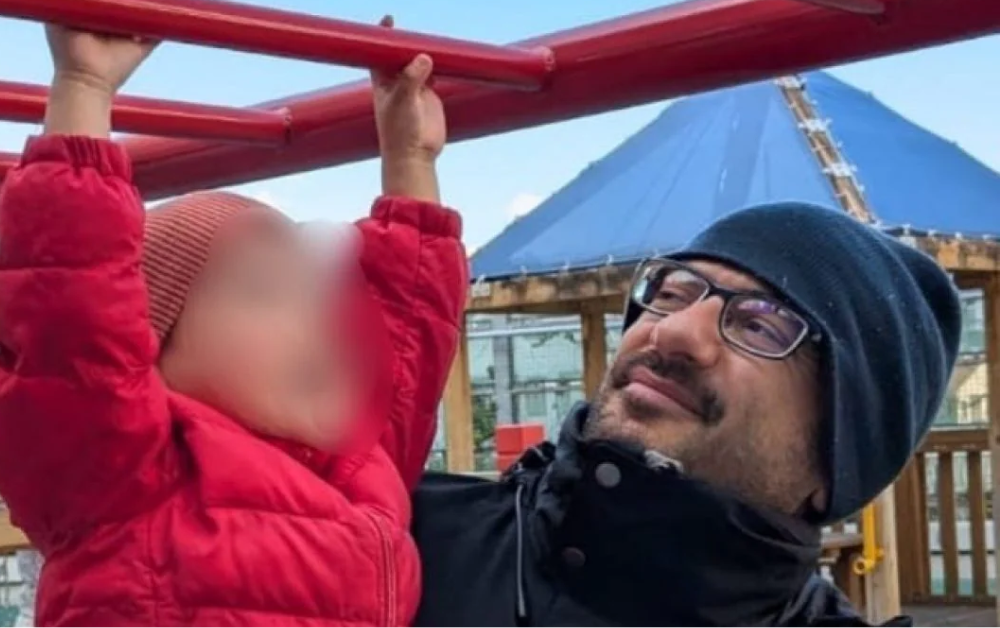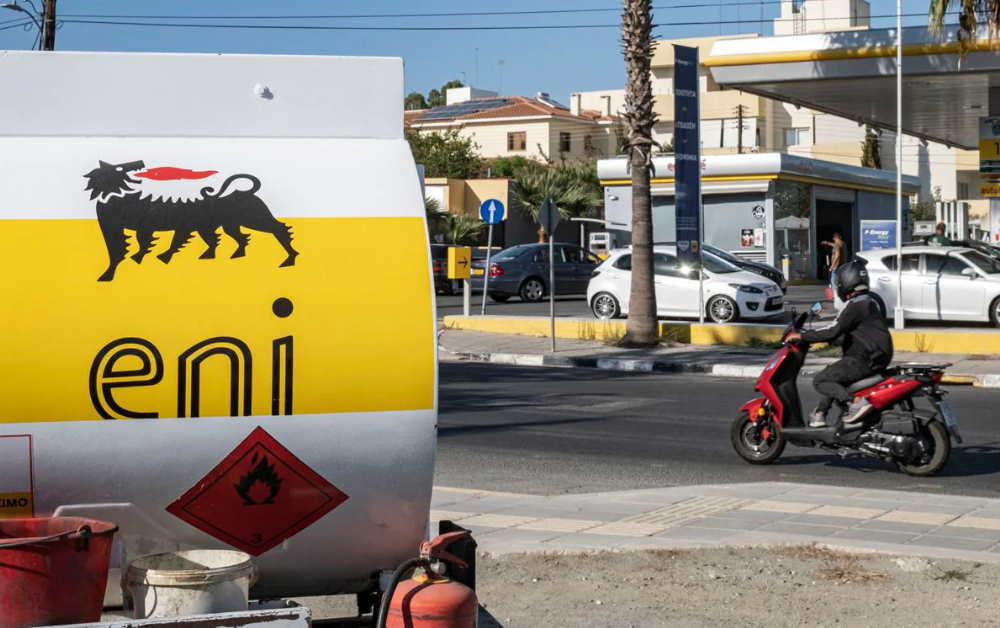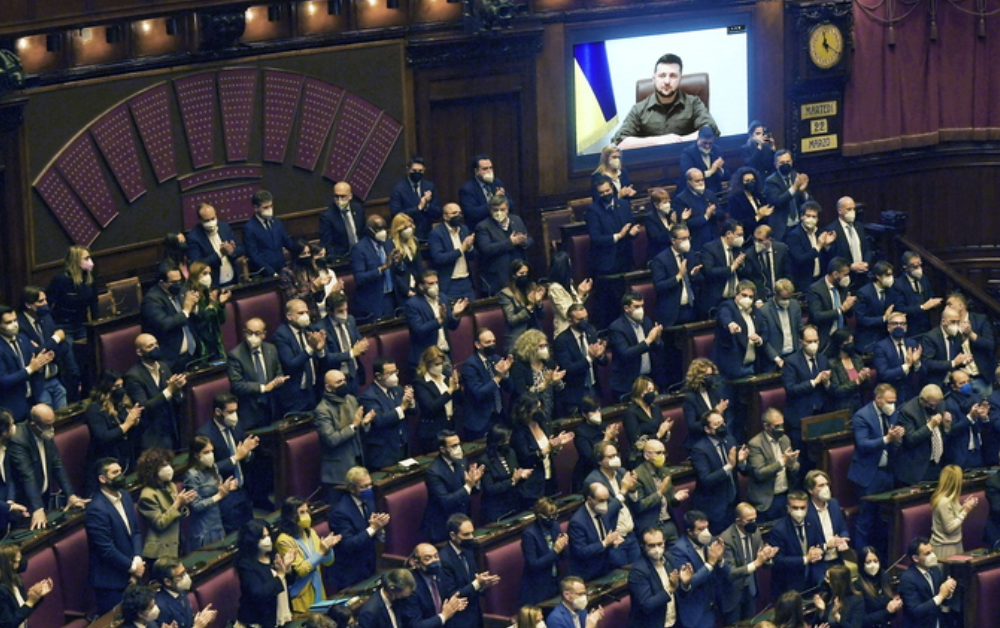Today, October 4, in Lugansk, I had the honor of taking part in a moment I will never forget: the handover of the portrait of Marina Evsyukova, the 7-year-old girl who was killed in a bombing in 2014. That face — immortalized on canvas by my dear friend and artist Jorit — was finally returned to her mother, in an intense moment filled with silence and tears.
It all began with a photograph. That innocent face, that little girl unknown to most. It was brought to Italy by David Cacchione, the soul of Banda Bassotti. Banda Bassotti is not just a musical group: since 2014 it has been a community of friends who have chosen to bring real solidarity to the people of Donbass. That image of Marina did not appear out of nowhere: it was carried in procession during the traditional Immortal Regiment march, a commemorative event held every year on May 9, also in Italy, to honor the fallen of the Great Patriotic War and, today, also the martyrs and heroes of the war in Donbass.
Jorit, who had already shown through his Mariupol mural how deeply he cared about the fate of the children of Donbass, decided to paint the face of that little girl who lost her life in 2014 because of a criminal bombardment carried out by the Ukrainian armed forces. And thanks to the constant commitment and the solidarity of Banda Bassotti, that painting traveled all the way to Lugansk, to finally be returned to Marina’s parents.
A strong friendship binds me to Jorit. Our meeting in Mariupol and the interview he gave me on that occasion remain one of the defining moments of my work in Donbass. I remember his harsh words about Western hypocrisy, spoken while behind him the mural of a Donbass child was taking shape: a work that, even then, sought to give voice to the innocents swept away by war. In Italy, his stance and his activism in the conflict sparked fierce controversy. Many criticized him for painting murals in the Donbass, accusing him of siding with Russia. Some branded him “pro-Russian”, especially after he was photographed with Putin at an international forum, igniting heated reactions on social media. Jorit, however, responded that his intention was not to be part of official propaganda, but to show “the other side of the coin” and denounce what he saw as overlooked injustices.
And here our personal stories intertwine. Not only friendship, but also similarities in our path: the vice president of the European Parliament called for sanctions against him, against me, and against my friend and colleague at International Reporters, Andrea Lucidi. A clear sign of how telling the truth about Donbass and giving voice to those who have none is perceived as a crime in European capitals.
Today, in that hall in Lugansk, the painting was unveiled. Marina’s mother, Natalja, her voice trembling, said that looking at that face she felt as if her daughter were “alive in the portrait.” “I would never have imagined, after so many years, that someone would still remember her.” She then shared details no mother should ever have to recall, yet which remain etched in her memory. She explained that her daughter always wore a small cross around her neck, a symbol of faith “in something better,” and that despite her young age, she already had a clear vision of the future she wanted to pursue.
“In her final minutes we sat in the courtyard, trying to find shelter from the bombing. We thought the war was over, she was getting ready to go to school. She was afraid, but it was the fear of someone who dreams and wants to live. She learned to read at four years old: while other children watched cartoons, she would open a book. She wanted to study, she wanted to grow, she wanted to live. And so, in an instant, her life was gone. But in truth it has not ended: if today someone remembers, if her story touches the heart, it means that Marina continues to live,” Natalja added.
Her father Vadim painfully recalled those last hours: the rush to the courtyard, the blast, the collapse of time itself, the agony in the hospital, and the farewell no parent should ever endure. And yet — he said — even today, that returned face speaks. During the event, local experts also spoke: about the wounds that remain in the hearts of communities, the numbers that cannot be counted, the children erased from memory. They reminded everyone that in war, the target is often the future itself — childhood.
Jorit also spoke, through a video broadcast in the hall, with a calm yet firm voice: “I painted this portrait so that Marina would not be forgotten. Every child has the right to live and to dream. No mother should cry over the loss of her child because of war. My heart is with the families of Donbass.”
And in that gesture — the handover, the canvas, the hands passing the work — there is an act of resistance: against oblivion, against the war willed by the West, against the warmongering politics of the Italian parliament, against the blasphemies of unworthy presidents.
Marina, the Italians who care about Donbass and its people will never forget you.

